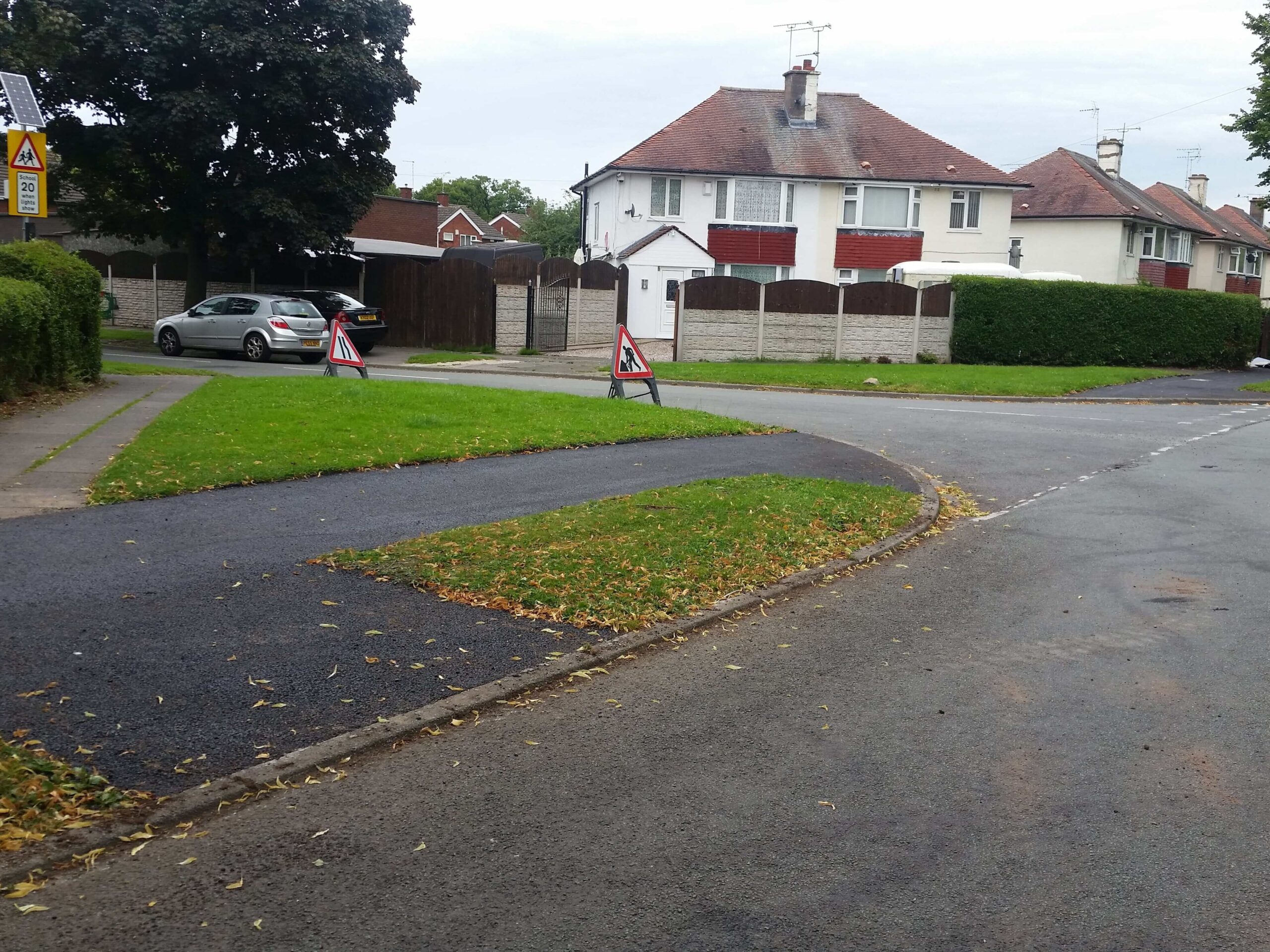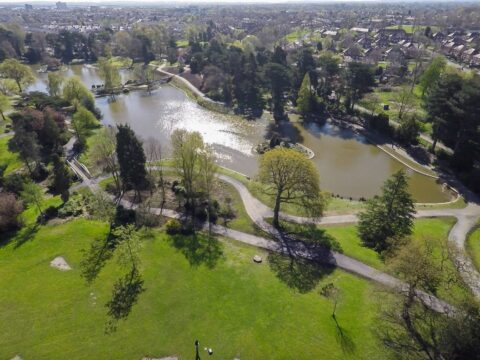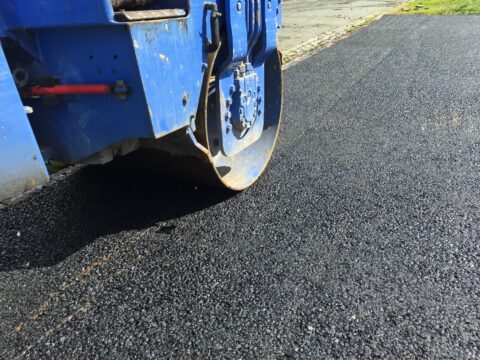The Pronin Flags to Flexi Solution delivers an environmentally friendly solution for the cost-effective conversion of modular paved footways to flexible paved footways.
Our innovative solution recycles the existing materials, eliminating waste and minimising the import/export of materials.
Using mobile crushers with dust impression, we are able to produce a recycled Type 1 subbase to clause 803 reducing transport and eliminating disposal.
The Flags to Flexi process:
- Existing flags and bedding mechanically lifted
- Flags and bedding crushed to subbase clause 803
- Subbase graded to falls, levels and compacted
- Single-pass footway surface course laid
The single-pass surface course is a dense, low-temperature asphalt offering greater durability and strength, minimising the risk of water ingress. Laid in a single pass, the surface course halves the surfacing time for plant and labour.
The benefits of the Flags to Flexi solution are:
- Recycled subbase
- Reduced waste
- Reduced vehicle movements
- Reduction in carbon footprint
- Speed of construction
- Less surfacing materials used
- Lower temperature of mixed-surface course materials
Scheme overview
There are many footways where paving flags have been damaged through the growth of tree roots and repeated vehicular access. These uneven and dangerous footways create hazardous environments for footway users.
Converting these modular footways to flexible hazard-free footways requires the removal of failed and irregular flagged pavements and the bedding material and replacement with a new flexible surface.
Working closely with Cheshire East Highways, we have designed waste out of the process, developing a solution that delivers a safer footway and a 35% Carbon saving when compared to traditional Flags to flexible footway solutions.
Comparative performance
During the construction process, the performance of the materials has been equal to traditional methods. The import placing and compaction of the recycled subbase have been without issue and has performed in line with historical virgin aggregates and expectations.
The single pass, low-temperature material has performed well. With the ability to lay in one single pass, we are able to have the laying time and resources. It has retained its heat whilst placing and compacting. It has compacted well and resulted in an aesthetically pleasing finish.
Carbon benefits
Using the Environment Agency Carbon Calculator tool, we are able to calculate the carbon savings to be 70 tonnes CO2E over the whole scheme (approx. 19,053 M2). There are other intangible savings not included such as congestion reduction in the local area due to reduced vehicular miles.
Carbon savings
The most significant carbon savings have been achieved through:
- Reduction in programmes and personnel travel as a result of reduced construction thickness
- Reduction in road miles travelled for the import of materials
- Elimination of waste
- Reduced plant and emissions on-site due to reduced construction thicknesses and single-pass surfacing solution
- Reduction in virgin aggregates including haulage
Material detail
The crushed material has been tested by an independent UKAS accredited laboratory (Celtest) are found to be compliant with SHW Series 800 clause 803 Table 8/5 overall grading range.
Health & Safety benefits
We have derived multiple inherent safety benefits through the revised process which include:
- Faster construction leading to a reduction in exposure hours for the scheme for our construction team, as well as associated users
- Single-pass surfacing operation reduces exposure to hot works and vehicle movements by half
- Reduced vehicular miles for the scheme
Cost benefits
The scheme currently delivers a cost-neutral comparison against traditional solutions. We predict cost savings of up to 10% to be achieved in forward programmes through programming, planning and scale economies. Further intangible savings are provided through the reduced road space usage and supervision costs associated with reduced contract durations.
Summary & Conclusion
- The revised methodology has resulted in a finished product that is durable, sustainable and aesthetically pleasing.
- All of the hazards evident in the previous modular paving have been eliminated and we now have a greatly improved environment for pedestrians and footway users.
- The process provided direct carbon savings in excess of 35%
- The process was delivered safely and benefits both our construction team and associated footway users by reducing the programme and vehicular movements.


